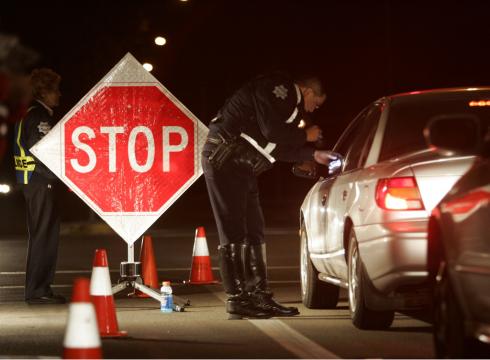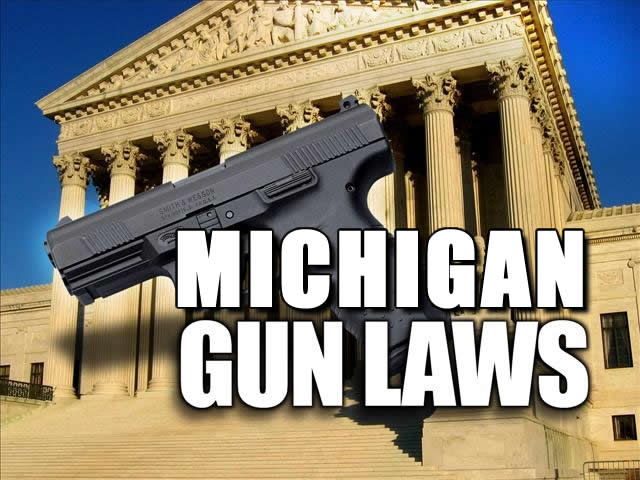Understanding the Process and Rules of Impeachment in Michigan
Michigan’s history with impeachment is relatively short, with the first and only instance occurring in 1975 against Governor William Milliken.
However, the process outlined in the state’s constitution and further detailed in the Michigan Compiled Laws Act 62 of 1872 remains a relevant and important safeguard against misconduct by public officials.
Take a dive into the impeachment rules and laws in Michigan
Grounds for Impeachment:
As per MCL Act 62, impeachment in Michigan can be initiated against any state officer, including the governor, lieutenant governor, secretary of state, attorney general, and justices of the supreme court.
The grounds for impeachment are outlined in the Michigan Constitution, Article IX, Section 7, and encompass a range of offenses, including:
- Treason: Betraying the state or aiding its enemies.
- Bribery: Accepting or offering bribes in exchange for official action.
- Misconduct in office: Any act that constitutes a violation of the public trust or a breach of duty by an official.
- High crimes and misdemeanors: This catch-all category encompasses serious offenses that, while not specifically defined, are deemed to be detrimental to the state and its citizen
The Impeachment Process:
The impeachment process in Michigan is a two-stage procedure:
1. House of Representatives:
The process begins in the House of Representatives, where a majority vote is required to initiate an impeachment inquiry.
If the inquiry finds sufficient evidence of wrongdoing, the House can vote to impeach the official by a two-thirds majority.
Upon impeachment, the official is suspended from office until the Senate trial.
2. Senate Trial:
The Senate then conducts a trial, presided over by the Chief Justice of the Supreme Court.
Both the House and the impeached official are represented by counsel and have the right to present evidence and witnesses.
A two-thirds majority vote in the Senate is required to convict the official and remove them from office.
MCL Act 62 and the Impeachment Process:
MCL Act 62 provides further details and procedures related to the impeachment process. It outlines:
The specific steps involved in forming an impeachment inquiry committee in the House.
The rules of evidence and procedure during the Senate trial.
The potential consequences of conviction, including removal from office and disqualification from holding future public office.
Michigan Laws
IMPEACHMENTS
6.1 Impeachment of civil officers; power of house, suspension; vacancies.
Sec. 1.
6.2 Impeachment; trial by senate, judgment.
Sec. 2.
6.3 Impeachment; prosecution by house.
Sec. 3.
6.5 Impeachment; appearance and answer of accused.
Sec. 5.
6.6 Impeachment; counsel for accused.
Sec. 6.
6.7 Impeachment; trial, time, place, adjournment.
Sec. 7.
6.8 Impeachment; acquittal.
Sec. 8.
Have your rights been violated?
Have your driving priviledges been revoked?
Has your professional license been suspended?
Have you been charged with a crime?
Call our office to see if we can help
Komorn Law 248-357-2550
6.9 Impeachment; president of senate, notice to senate.
Sec. 9.
6.11 Impeachment; duties of secretary; record of proceedings, oaths.
Sec. 11.
6.12 Impeachment; senate appointment and removal of subordinate officers.
Sec. 12.
6.13 Impeachment; powers of managers, rights of process.
Sec. 13.
6.14 Impeachment; senate rules and regulations.
Sec. 14.
6.15 Impeachment; compensation of members of court, managers, and other officers; payment.
Sec. 15.
6.16 Application of act.
Sec. 16.
Index
Index and Information Source
History: 1872, Act 62, Imd. Eff. Mar. 30, 1872
| Document | Type | Description |
| Section 6.1 | Section | Impeachment of civil officers; power of house, suspension; vacancies. |
| Section 6.2 | Section | Impeachment; trial by senate, judgment. |
| Section 6.3 | Section | Impeachment; prosecution by house. |
| Section 6.4 | Section | Impeachment; organization of senate as court, oaths, attendance of members. |
| Section 6.5 | Section | Impeachment; appearance and answer of accused. |
| Section 6.6 | Section | Impeachment; counsel for accused. |
| Section 6.7 | Section | Impeachment; trial, time, place, adjournment. |
| Section 6.8 | Section | Impeachment; acquittal. |
| Section 6.9 | Section | Impeachment; president of senate, notice to senate. |
| Section 6.10 | Section | Impeachment; writs and process, signing and testing, enforcement. |
| Section 6.11 | Section | Impeachment; duties of secretary; record of proceedings, oaths. |
| Section 6.12 | Section | Impeachment; senate appointment and removal of subordinate officers. |
| Section 6.13 | Section | Impeachment; powers of managers, rights of process. |
| Section 6.14 | Section | Impeachment; senate rules and regulations. |
| Section 6.15 | Section | Impeachment; compensation of members of court, managers, and other officers; payment. |
| Section 6.16 | Section | Application of act. |
More Posts

Arrests for DUI’s on the Rise
By Michael Komorn Arrests for DUI’s have been on the rise across Michigan. This trend could drastically increase as The National Transportation Safety Board (NTSB) has called on state authorities to reduce the legal limit to 0.05 percent. Currently, all 50 U.S. states...

US District Court Judge rules police cannot enter a car without a warrant to facilitate a drug dog sniff
Federal Judge Applies GPS Ruling To Drug Dog Traffic Stop By Michael Komorn Last week, a judge with the US District Court for the Southern District of West Virginia applied the precedent to the common police practice of “permeation” where a police officer enters a...

Drug Checkpoints: Unconstitutional
By Michael Komorn The Supreme Court ruled in City of Indianapolis V. Edmund that drug check points are unconstitutional. So what happens when you see one on the highway? Keep calm and carry on. Police, especially in the Mid-west, have been using drug check points as a...

Knowing When to Exercise Your Rights
Remember, even if you are doing nothing wrong, there are a number of different outcomes that can occur from a police encounter. The short list includes: 1) No action, no problems; 2) A warning or citation; 3) An arrest and/or criminal charges. Exercising your rights...

Why Police Lie Under Oath
Thousands of people plead guilty to crimes every year in the United States because they know that the odds of a jury’s believing their word over a police officer’s are slim to none. As a juror, whom are you likely to believe: the alleged criminal in an orange jumpsuit...

What Did I Just Get Charged With?
Below is a list of common drug offenses as defined by the State of Michigan. If it is your second offense, it is important you read statute 333.7413 below. 333.7413 Conviction of second or subsequent violation; penalty....








